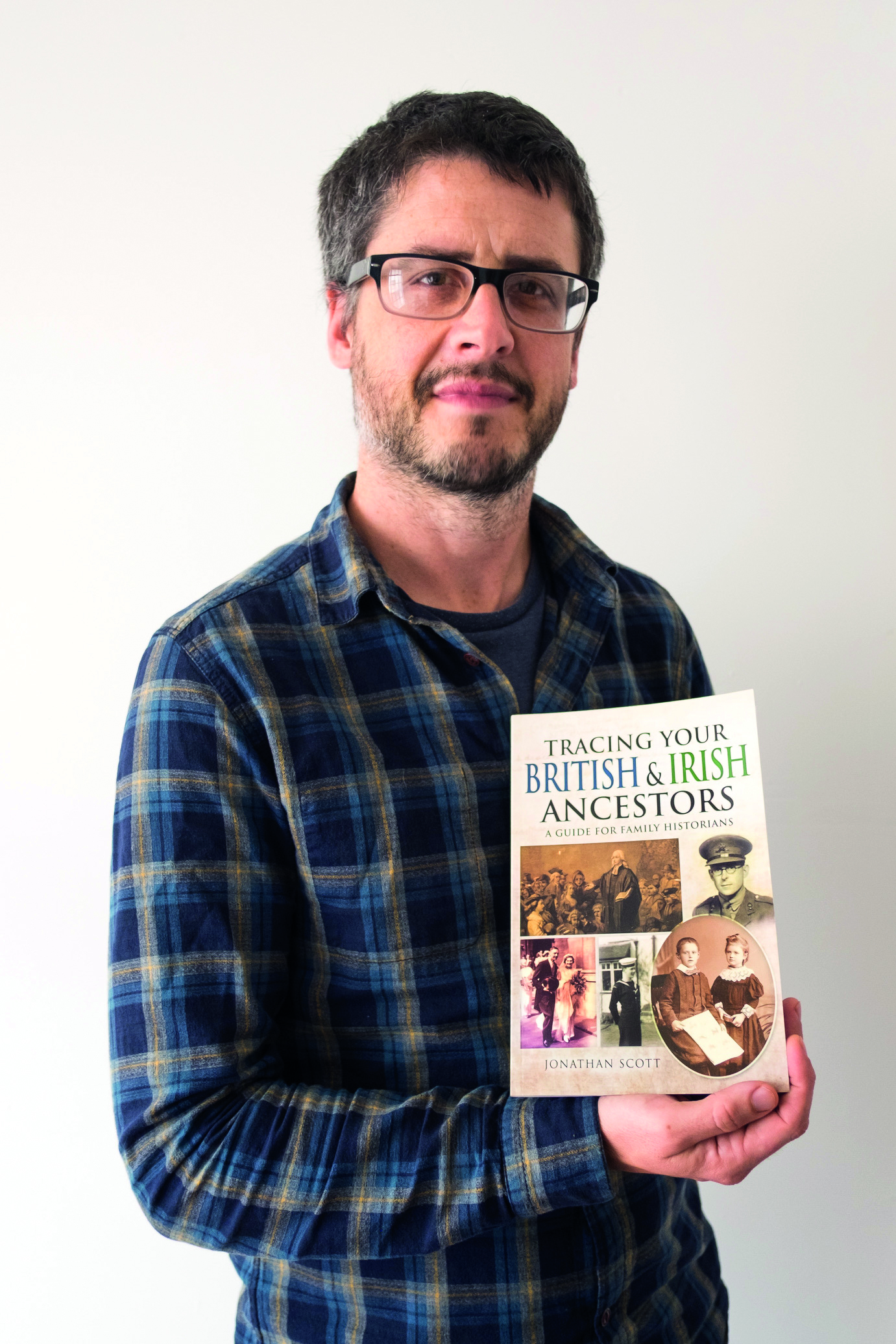Surnames may derive from an occupation, a place, a relationship with a father (patronymic, for example Johnson meaning 'son of John') or a nickname.
Wales famously has a smaller number of family names, meaning that surnames such as Jones, Thomas, Roberts, Evans, Davies and Williams are very common amongst people with Welsh ancestry. Welsh surnames tend to derive from a relationship to a father (patronymic). As well as the common examples above, names such as Price come from ‘Ap Rhys’, meaning ‘son of Rhys’ and Pritchard comes from 'Ap Richard' or 'son of Richard’.
In Scotland, as well as the well-known clan names, such as Campbell, Stewart and Macdonald there are other Scottish surnames such as Brown which are common in England as well but could indicate Scottish ancestry. Surnames with ‘Mac’ or ‘Mc’ in front have come from a relationship to a father (patronymic), so Macdonald derives from ‘son of Donald’. Scotland also has topographical surnames derived from place names. Dunlop comes from the Gaelic for a muddy fort or hill.
Irish surnames are derived from Gaelic and are also frequently patronymic names, with prefixes such as 'Mc' and 'O'.
England’s most famous and most common surname is Smith which is a good example of an occupational surname. Other common examples are Wright, Taylor, Clarke, Baker, Shepherd, Mason and Butcher. Some reflect jobs we may not recognise now such as Fletcher (someone who makes arrows) and Chapman (someone who sold goods at market).
Although not quite as common as in Scotland and Wales, England also has its fair share of patronymic surnames including Johnson, Robinson, Jackson and Richardson.
Finally, some surnames came from nicknames that people may have been given. These include Armstrong, Bellamy (‘good friend’), Moody, Wise and Fox.
Investigating the origins of one’s own surname is often a natural diversion for family historians.
For a one-name study, however, the surname takes over. You can study a surname's etymology and history, patterns in distribution, and movements across borders and boundaries.
Using a DNA test, meanwhile, allows you to link up with namesakes from across the globe.
Whatever your surname, if you would like to find out more about it and where it came from, then take a look at these websites which offer a range of useful tips.
The best websites for researching surnames
1. Guild of One-Name Studies
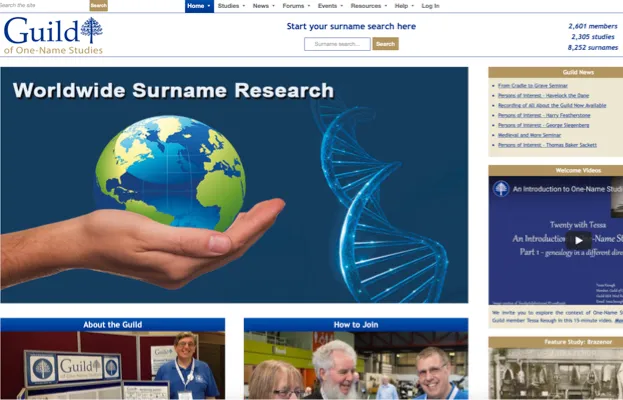
The Guild of One-Name Studies is the organisation for individuals and groups researching particular surnames. Its website has useful public material, alongside resources that are restricted to members.
Click ‘Studies > Surname A–Z’ on the site’s menu bar to explore the list of 8,000 surnames that members are currently researching.
It links to external websites from well-established one-name societies and groups working on individual micro- or macro-level projects.
The ‘Resources’ section includes two free indexes – Modern Newspapers (1950 to date), and Marriages of the World (up to 80 years ago) – alongside several more if you decide to become a member.
The detailed DNA testing guide explains how it can be incorporated into your surname research. You’ll also find good introductions to launching your own one-name study.
Joining the guild costs between £18 and £34.50 depending on when you sign up, the length of your membership and whether you decide to register a study.
2. Your Family History
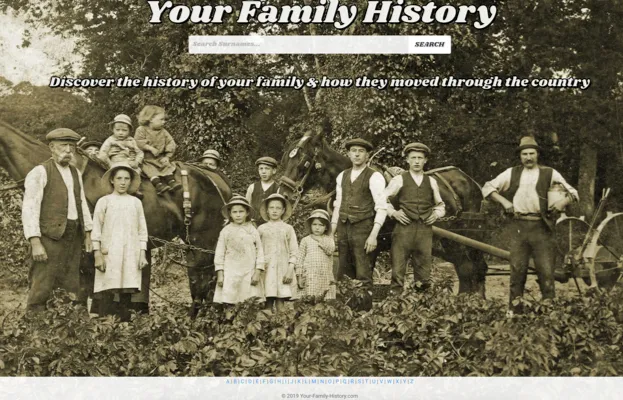
An excellent beginners’ tool for researchers with interests in England and Wales, this website allows you to quickly and easily follow distribution patterns through census records.
You can either type a surname into the search engine, or browse the collection alphabetically. While not exhaustive, the site certainly has a wide spread. Entries for surnames normally include a basic etymology as well as colour-graded distribution maps – you can click on the different census years to see how the common the surname is across the decades.
Scroll down to more statistics, showing common professions associated with the surname, most frequent forenames and the popularity of different variants.
3. Surname Mapping Guide
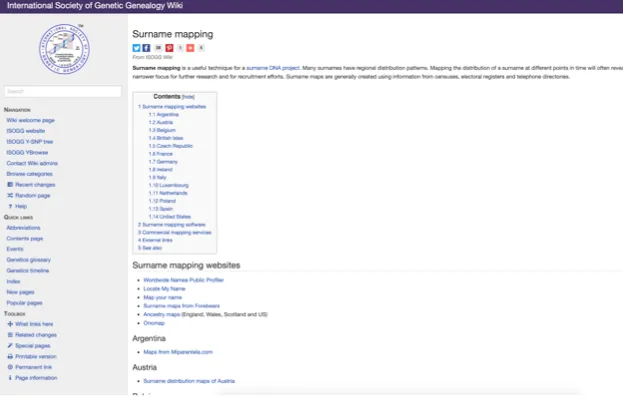
Many surname researchers have taken to genetic genealogy with gusto. If you’re still getting to grips with it, then the wiki from the International Society of Genetic Genealogy will come in handy. This particular page is useful for finding out more about surname mapping, and seeing examples of DNA surname projects. Surname maps are generally created using sources such as censuses, electoral registers and telephone directories.
4. Prosopography of Anglo-Saxon England
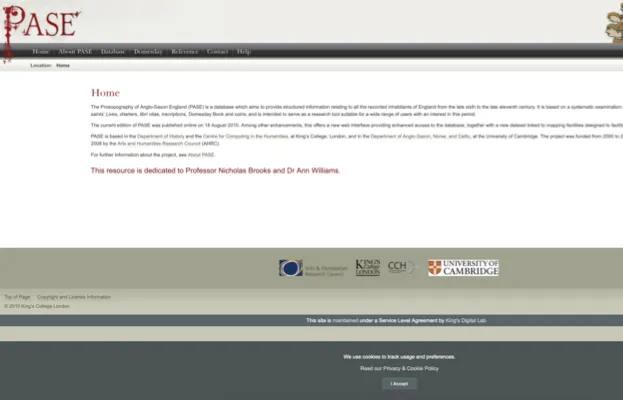
If you’re seeking the earliest written references of particular surnames then you could try the Prosopography of Anglo-Saxon England.
PASE lists individuals until the end of the 11th century, recorded in chronicles, saints’ lives, charters, libri vitae, inscriptions, the Domesday Book and coins.
Similar resources include People of Medieval Scotland, The Soldier in Late Medieval England, and Manuscript Pamphleteering in Early Stuart England.
5. Ancestry Guide to Surnames
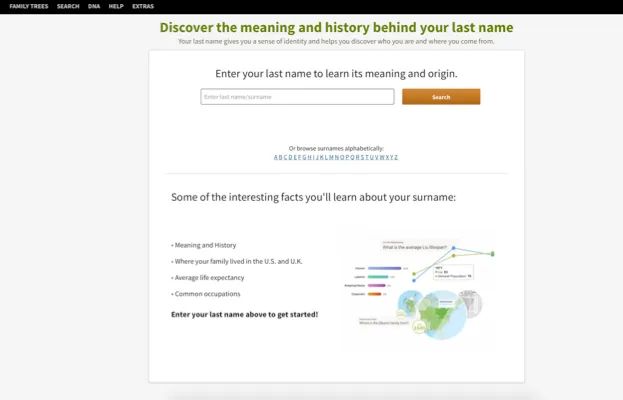
Here you can access data, derivations and distribution patterns relating to surnames. It works pretty well, as you’d expect from Ancestry, and you don’t need to subscribe to use it.
I tested it with a number of surnames to see if I could trip it up. Searching for the Northern Irish name ‘Mcquillan’, for example, we learn that it’s the “Anglicized form of Gaelic Mac Uighilín – ‘son of Huguelin’ – a double diminutive of the Norman personal name Hugh”, and that it comes from an important family in Co. Antrim.
The only entry for some obscure surnames, however, results in generic copy about the history of surnames, alongside a map showing census findings.
More websites for researching surnames
6. British Surnames
At time of writing ‘Smith’ was top of the homepage’s list of ‘most viewed’ surnames from the past seven days. Click the name, and we learn that it comes from the Anglo-Saxon Smitan, to smite or strike.
7. Connected Histories
Similar to the Prosopography of Anglo-Saxon England, this website enables you to search for surnames within British sources back to 1500.
8. DNA Surname Projects
This page from FamilyTreeDNA is useful for finding ongoing DNA surname projects.
9. GB Names
Compiled by a Consumer Data Research Centre project into social mobility, this website tracks 13,000 common British surnames between 1851 and 2016 and allows you to search your surname for factors including geographic distribution, common first names associated with it and levels of poverty over time.
10. Modern British Surnames
The Guild of One-Name Studies sponsors this interesting surname site from the late Philip Dance.
11. The Names of England
To celebrate England making it to the finals of the 2021 Euros, English Heritage launched this online England flag of over 32,000 of the country's most common surnames, with information about each.
12. Oxford Dictionary of Family Names in Britain and Ireland
Find out about the research that went into this mammoth 2016 surname dictionary, available in print (£400) and as an ebook. You can access the book digitally through some institution-level subscriptions. You can also buy an edited concise version for £80.
13. Society of Genealogists
Search indexes and the society catalogue to see what holdings it has for a surname of interest, including Victorian volumes and pedigrees.
14. Surname Society
This online surname group allows members to share their discoveries, and you can find out if members are researching your surname for free.
